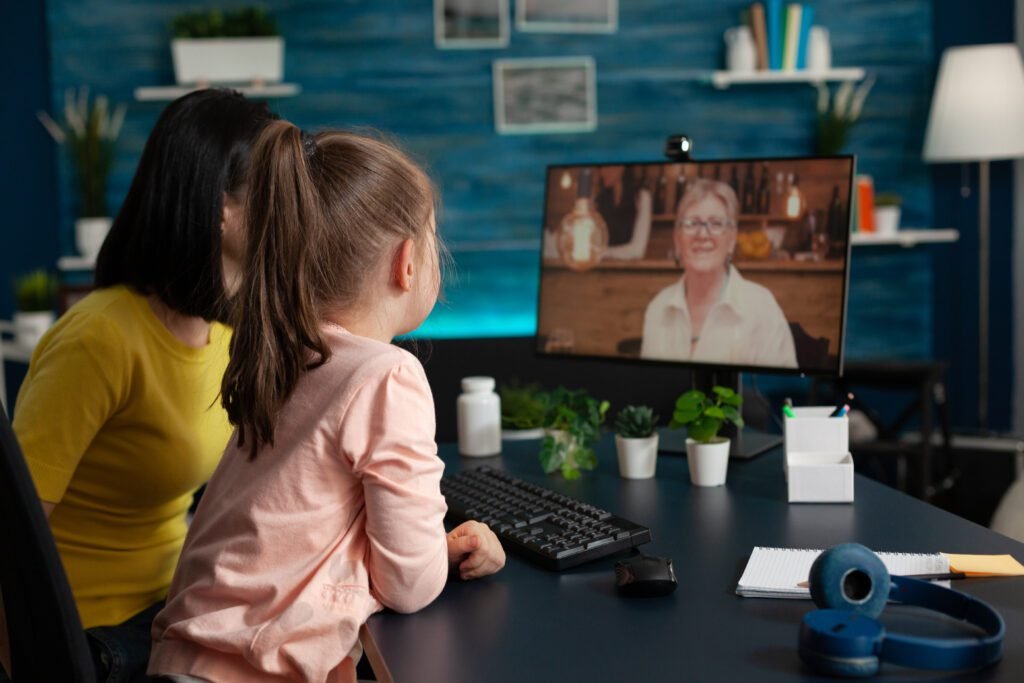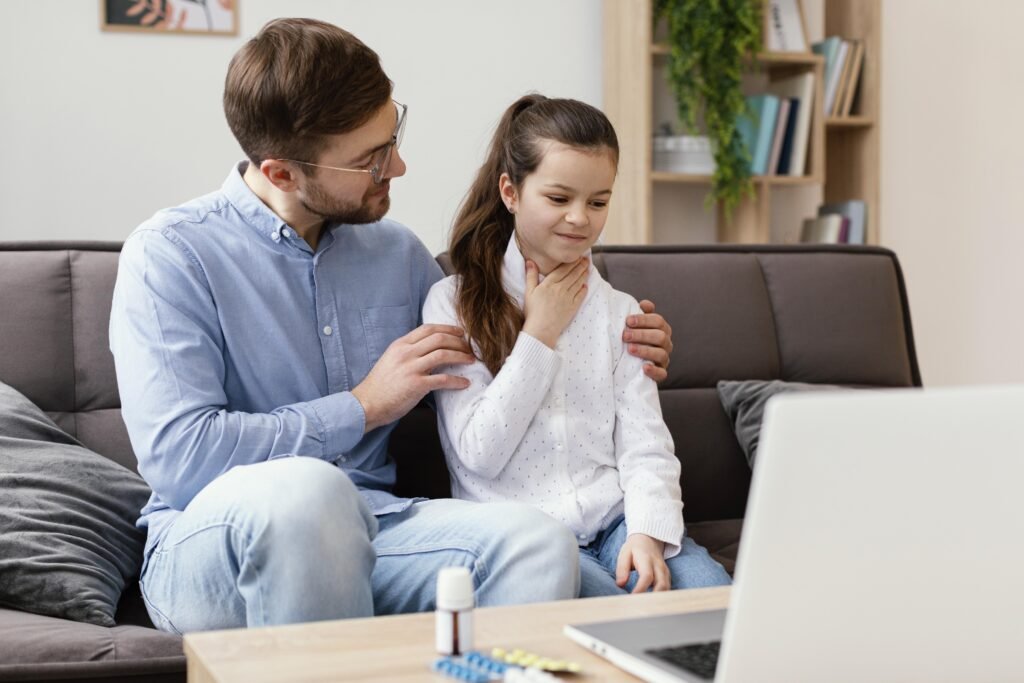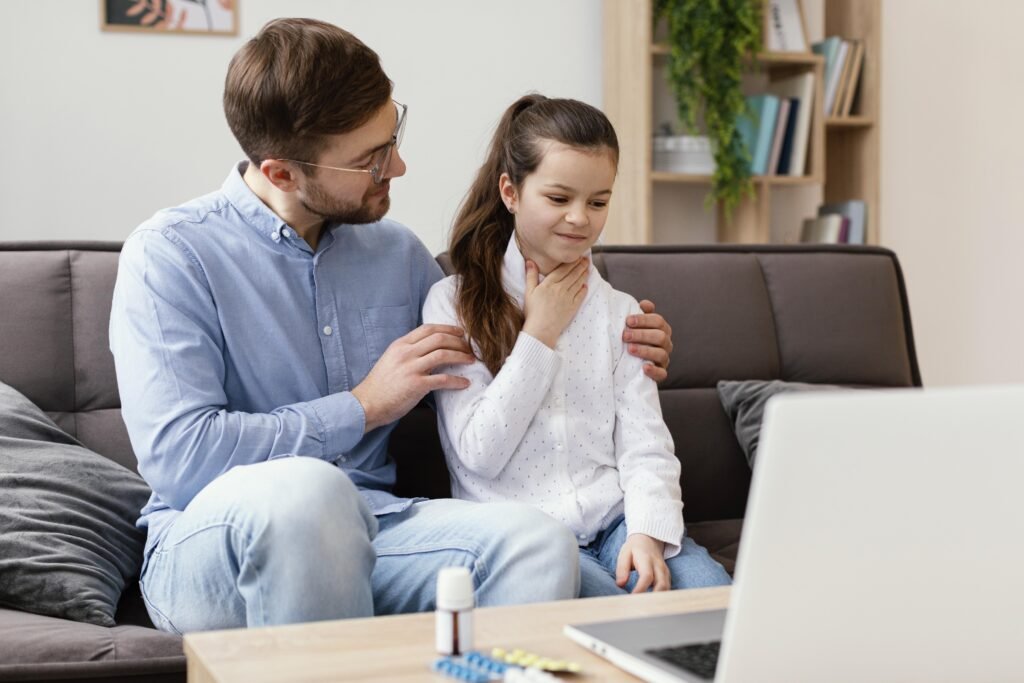It’s normal for kids and teens to feel sad from time to time. But when that sadness begins to linger, grow deeper, or interfere with daily life, it may be something more. As a parent, it can be hard to know when to worry, especially when children are going through transitions, stress, or simply having a rough week. But recognizing the early signs of depression in children and teens can make a significant difference in how quickly they get the support they need.
At Amy Brown Counseling, we help children age seven and up, as well as teens and preteens, understand and manage what they’re feeling. We offer virtual therapy for kids and teens in Missouri, including the St. Louis and Chesterfield areas, and we understand that early intervention can be a powerful part of healing.
What Depression Can Look Like in Children and Teens
Depression in kids and teens doesn’t always look like sadness. Often, the symptoms show up in subtle ways that might be mistaken for behavior problems, attitude, or just a bad mood. Depression can be internalized in quiet kids who seem withdrawn, but it can also be expressed through anger, irritability, or school refusal in more vocal children. Paying attention to patterns and shifts over time is key.
Common Emotional and Behavioral Signs of Depression
Some of the most common signs of depression in children and teens include:
- Persistent sadness that lasts for weeks or longer
- Irritability or anger that seems disproportionate to the situation
- Withdrawal from family, friends, or previously enjoyed activities
- Frequent crying spells or expressions of hopelessness
- Feelings of worthlessness or excessive guilt
- Difficulty concentrating or making decisions
- Talking or writing about death or self-harm
While any of these signs may appear occasionally in children or teens for other reasons, it’s the combination, intensity, and duration of these symptoms that may signal something more serious.
Physical and Academic Clues to Watch For
Depression can also affect the body and the ability to function in daily routines. Parents may notice:
- Changes in appetite or weight
- Trouble falling asleep, staying asleep, or sleeping too much
- Fatigue or low energy even with plenty of rest
- Declining grades or difficulty focusing in school
- Frequent complaints of stomachaches, headaches, or feeling sick without a clear medical cause
When physical symptoms show up without a clear explanation, it’s worth considering whether stress or emotional health could be a contributing factor.
Understanding What’s Behind the Depression
There’s never just one reason a child or teen develops depression. It may be related to life events such as divorce, loss of a loved one, bullying, academic stress, or trauma. Sometimes it’s connected to self-esteem issues or social isolation. Other times, it may run in the family or be related to brain chemistry.
At Amy Brown Counseling, our therapists help families explore what might be contributing to the depression and develop a plan that supports both healing and growth. We use a variety of evidence-based approaches depending on the age and developmental stage of the child or teen.
Why Early Support Matters
When depression goes unrecognized, children and teens can begin to feel like no one sees what they’re going through. It can affect their ability to form healthy relationships, perform at school, or imagine a hopeful future. On the other hand, getting support early helps kids learn to manage difficult emotions and develop resilience.
Therapy provides a safe and supportive space to talk about hard things without fear of judgment. It’s also a place to learn coping strategies, challenge negative thoughts, and feel heard by someone who understands.
How Virtual Therapy Works for Children and Teens
For many families in Missouri, virtual therapy has become a convenient and effective way to support emotional health. Our practice offers online therapy for children and teens in Missouri, including those living in St. Louis and Chesterfield, and our therapists are skilled at engaging young clients through secure, interactive sessions.
Kids and teens can join sessions from the comfort of home, whether that means sitting on the couch with a parent nearby or hopping on after school from their bedroom. Many parents find that their child opens up more easily in a familiar space without the pressure of an office setting.
We use creative tools and platforms that allow therapists and kids to interact on-screen in ways that feel natural and engaging. For younger kids, this might involve games or drawing activities. For teens, it often includes conversation, guided support, and personalized coping tools.
What Parents Can Do Right Now
If you’re worried your child or teen may be showing early signs of depression, you don’t have to wait for it to get worse before seeking support. Here are a few steps you can take:
- Gently ask your child how they’ve been feeling lately
- Create space for them to talk without pressure or judgment
- Reflect back what you hear and validate their feelings
- Reassure them that help is available and that they’re not alone
- Reach out to a licensed therapist who specializes in working with kids or teens
Sometimes children are hesitant to start therapy at first, but most come to appreciate having a neutral adult who listens and helps them sort through what they’re experiencing. And for parents, it can be reassuring to have expert guidance and support.
You’re Not Alone
No parent wants to imagine their child or teen struggling with depression. But noticing the signs early and reaching out for help can prevent things from getting worse and provide the tools for long-term emotional health. At Amy Brown Counseling, we are here to walk beside your family every step of the way.
We specialize in virtual therapy for children, preteens, and teens across Missouri, including the St. Louis and Chesterfield areas. Our compassionate therapists create a safe space where young people can express themselves, build confidence, and develop coping skills that last.
If you’d like to learn more or schedule an appointment, fill out our new client inquiry form. We’re here to help your child or teen feel better and thrive.



